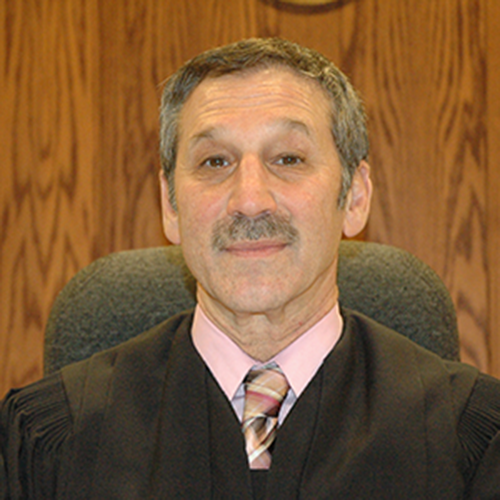Problem-Solving Courts: A Conversation with Judge Jeff Ford
Rethinking Justice from the Ground Up
Problem-solving courts are transforming how we approach justice. Unlike traditional courts—which often worsen the very problems they aim to fix—these courts focus on the root causes of criminal behavior, such as addiction, trauma, and mental illness.
In this episode of Justice Voices, David Risley interviews Judge Jeff Ford (ret.), a pioneer in this field. As the former president of the Illinois Association of Problem-Solving Courts, Judge Ford shares decades of insight from building and leading such courts in Champaign County, Illinois.
Breaking the Cycle of Crime
The mission of problem-solving courts is clear: reduce recidivism and improve lives. By targeting high-risk, high-need offenders, these courts aim to replace the prison pipeline with a pathway to healing.
Judge Ford explains how structure, accountability, and treatment combine to change behavior. As a result, not only do participants experience transformation, but their families and communities benefit as well.
Moreover, this approach has proven to be more cost-effective than incarceration. It prioritizes long-term public safety over short-term punishment.
Why the Right Team Matters
Equally important is the team-based nature of these courts. Judges, attorneys, case workers, and treatment providers all collaborate closely. According to Ford, this synergy is crucial for success.
Throughout the episode, he shares powerful stories of recovery and resilience. These aren’t just legal victories—they’re human stories of second chances and redemption.
Scaling the Impact of Problem-Solving Courts
Despite their success, these courts face serious challenges. Funding remains inconsistent. Cultural resistance within the legal system slows adoption. And scaling programs while maintaining quality is no small feat.
Still, Ford is optimistic. He believes problem-solving courts offer one of the most hopeful tools we have for criminal justice reform. His message is simple: we need more of them—now.
Resources and Links:
•Illinois Association of Problem-Solving Courts: ilapsc.org
#problemsolvingcourts #criminaljustice #restorativejustice #judicialreform #publicsafety
00:00 Introduction by host David Risley
00:09 Understanding the role of Judge Jeff Ford
01:30 The Concept of Problem Solving Paradigm of Justice
02:32 The Role of Problem Solving Courts in Addressing High Risk, High Need Individuals
03:23 The Distinctive Features
06:34 The Impact on Recidivism and Public Safety
06:48 The Economic Benefits
09:24 The Challenges and Limitations of Scaling Problem Solving Courts
09:51 The Variety of Problem Solving Courts: Drug, Mental Health, and Veterans Courts
12:06 The Personal Journey of Judge Jeff Ford
14:29 The Role of Trust and Relationship Building
17:19 The Success and Impact of Problem Solving Courts: Personal Stories
26:02 The Challenges and Resistance Faced in Implementing
31:00 The Evolution and Expansion of Problem Solving Courts
37:15 Understanding DUI Court and Recidivism
38:20 The Reality of DUI and Alcohol Consumption
39:21 The Importance of Understanding and Addressing the Problem
39:56 The Role of the Judge in DUI Cases
41:25 The Consequences of DUI and the Importance of Treatment
43:08 The Role of the Judge in Sentencing and Rehabilitation
44:31 The Impact of DUI Convictions on Individuals and Society
45:28 The Role of the Judge in Problem Solving and Changing Lives
47:46 The Importance of a Coordinated Team in Drug Court
50:09 The Success and Challenges of Drug Court
57:23 The Role of Law Enforcement in Drug Court
01:00:35 The Impact and Success of Drug Court
01:06:28 The Importance of Funding and Support
01:09:53 Conclusion:
Illinois Association of Problem-Solving Courts: https://www.ilapsc.org/
Justice Voices website: https://justicevoices.org
#problemsolvingcour
